You can't force operator<< to take two arguments on right-hand side. The following code:
obj<<("tgset10","mystring");
does not work as a function call with two arguments but instead just uses the , operator. But it's probably not what you are interested in.
If you need to pass two arguments to the << operator, you need to wrap them in some other (single) type. For example, you could use the standard std::pair, i.e. std::pair<const char*, const char*>.
But note that the operator<< should also return some reasonable type suitable for << chaining. That would probably be a tgsetmap& in your case. The following version should work fine:
#include <map>
#include <string>
#include <iostream>
class tgsetmap
{
public:
typedef std::map<std::string, std::string> list_type;
typedef list_type::value_type item_type;
list_type tgsetlist;
tgsetmap& operator<<(item_type item)
{
tgsetlist.insert(item);
return *this;
}
};
int main()
{
tgsetmap obj;
obj << tgsetmap::item_type("tgset10","mystring")
<< tgsetmap::item_type("tgset20","anotherstring");
std::cout << obj.tgsetlist.size() << std::endl;
}
Note that I've added typedefs to not have to repeat the type names over and over again. I've also made operator<< return a tgsetmap& so that << could be chained (used like in the modified main() above). And finally, I've reused the std::map<...>::value_type to make it simpler but you could also use any other type of your own.
But I believe that you may prefer using a regular method instead. Something like:
void add(const char *str1, const char *str2)
{
tgsetlist.insert( std::map<std::string, std::string>::value_type(str1, str2));
}
(inside the class declaration), and then:
obj.add("tgset10", "mystring");
